How to lose weight in a week - 12 expert tips to get started
Personal trainers and nutritionists reveal how to lose weight in a week with simple, easy steps to follow for sustainable weight loss
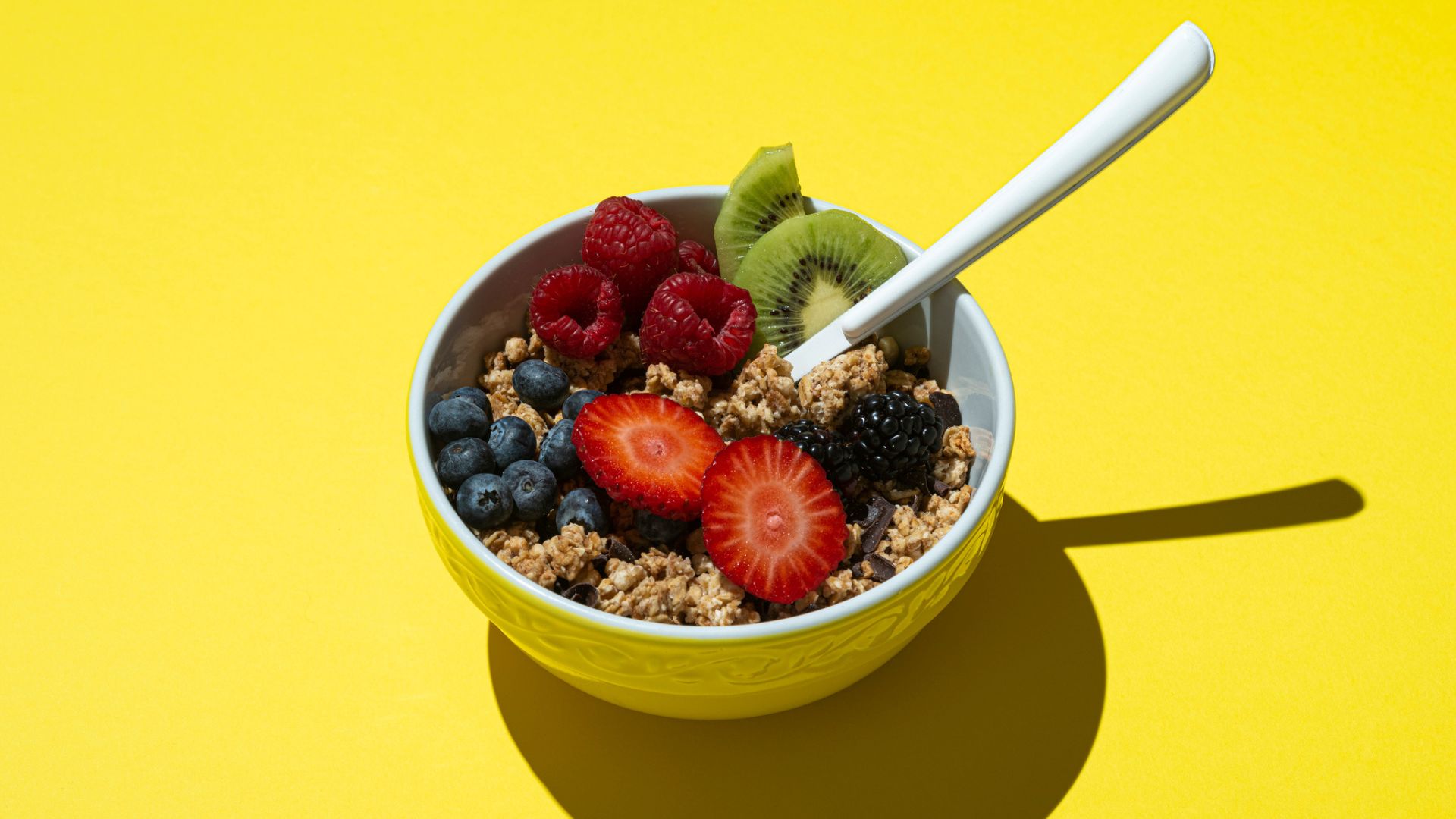

If you want to learn how to lose weight in a week, it's natural to think fast diets and high-intensity workouts will be the way forward. They've been sold to us as effective and worthwhile so well over the years that many people don't know they can do more harm than good.
These plans tend to contain far fewer calories than adults need to function and aim to burn many more calories than needed, leading to short-term problems like hunger, fatigue, and feeling worn out, and some longer-term conditions that may make healthy weight loss harder in the future.
It will always be better to lose weight over a longer period. Not only will you find it easier to do, but you may also be able to lose more weight - up to a stone in a month for some people. However, taking basic steps in just a few days can help you pivot towards a loss that stands the test of time and avoids some of the more classic mistakes.
How to lose weight in a week
To lose weight in a week, you'll need to get into a calorie deficit quickly. It's the only way to do it to begin with, studies by the Medical University of Vienna and Seoul National University confirm. There are many different diets you can follow that will help to achieve this, the easiest way to think about it is burning more calories than you eat every day.
"The exact number of calories someone should burn depends on their individual goals and body composition, but a good rule of thumb is to aim for a calorie deficit of 500 calories per day. This should result in a weight loss of roughly 1 pound per week," says Mike Hamlin, a certified personal trainer and weight loss nutrition expert.
This aligns with the medical advice from the NHS, which suggests 1 to 2lb per week (0.45 to 0.9 kg) of weight loss is safe. Per Hamlin's guidance, this adds up to a total weekly deficit of 3,500 calories for those looking to lose 1lb in a week and 7,000 calories for those looking to lose 2lb.
While we do burn some calories through exercise, the majority of our daily calorie burn comes from something called your basal metabolic rate (BMR) and non-exercise activity thermogenesis (NEAT). These are natural bodily processes like sleeping, sitting down, eating, and movement that's not exercise (e.g. walking around the house). It's possible to burn up to 2000 calories daily, depending on various personal factors, as explained below.
Sign up for the woman&home newsletter
Sign up to our free daily email for the latest royal and entertainment news, interesting opinion, expert advice on styling and beauty trends, and no-nonsense guides to the health and wellness questions you want answered.
Here's how to do it with expert-approved tips:
1. Track your calories
To understand how many calories you're eating in a day, track your calorie intake. Calories are listed on the nutritional labels of most food products and some restaurant menus. While it may not be 100% accurate, it's a good baseline at which to understand how many calories there are in particular foods.
"Start tracking your food intake using your pick of the best calorie counter apps, which scan food labels," suggests nutrition and performance coach Arj Thiruchelvam. "Eat at a calorie deficit and track calories for short periods [over one week, for example], avoid excessive water retention, and then revert to your maintenance level."
2. Exercise every day
Exercise is essential to getting into a calorie deficit and learning how to lose weight in a week. You can enter the deficit through diet alone through the processes described above - but it'll be much trickier than upping the exercise alongside changes in your diet, says nutritionist Jenna Hope. "The combination of activity and having a healthy, balanced diet is the best way to support healthy, sustainable weight loss," she explains.
Hamlin, who works with EverFlex Fitness, agrees. "Exercise can be beneficial for those looking to get into a calorie deficit because it helps burn more calories and can increase someone's metabolic rate, which means they burn more calories even when they're not exercising," he says. "Think of it this way - the muscles of your body are like an engine. The more muscle mass we have from exercising, the bigger our engine is and the more fuel (food) we can put in."
But instead of trying to get on board with high-intensity workouts or going running for hours on end, opt for an activity that you love. "Exercise shouldn't feel like a punishment," says Hope. "It's all about finding an activity that works for you."
That could be walking for weight loss, taking a spin class with a friend, swimming as a workout for beginners, at-home workouts, or just going for a morning walk every day.
How much exercise you should do depends on how much weight you want to lose but typical guidelines suggest 150 minutes of moderate-intensity exercise every week - that's just 21 minutes every day.
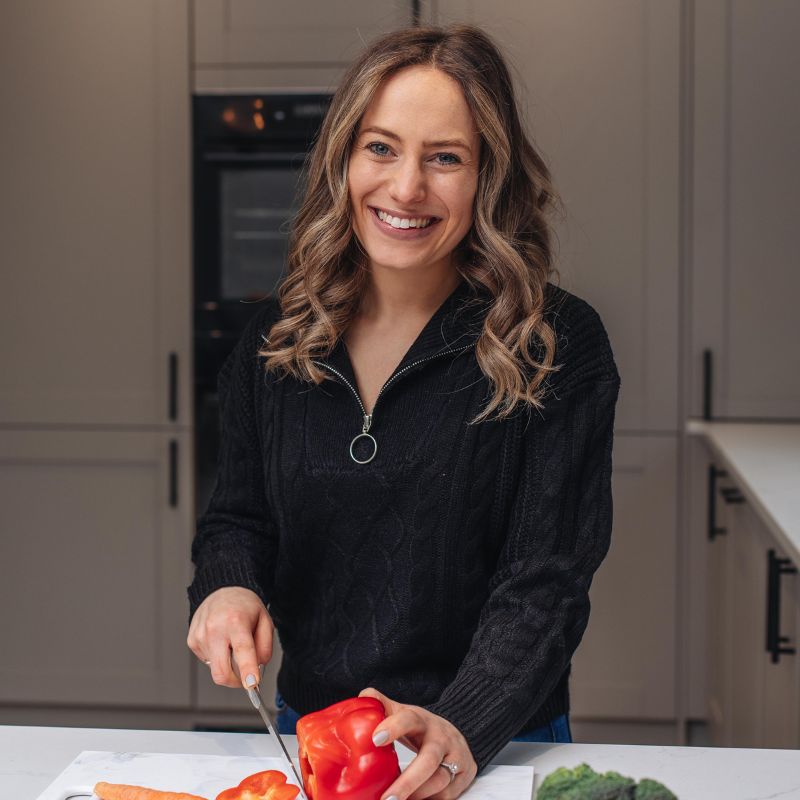
Registered nutritionist and author Jenna Hope has a Bachelors and Masters degree in Nutrition. Jenna is the founder of Nutrition Consultancy and Clinic, Jenna Hope Nutrition. She works closely with individuals, brands, companies and the media to help them interpret the science in order to implement smarter strategies for nutrition and support health and wellbeing for the long term.
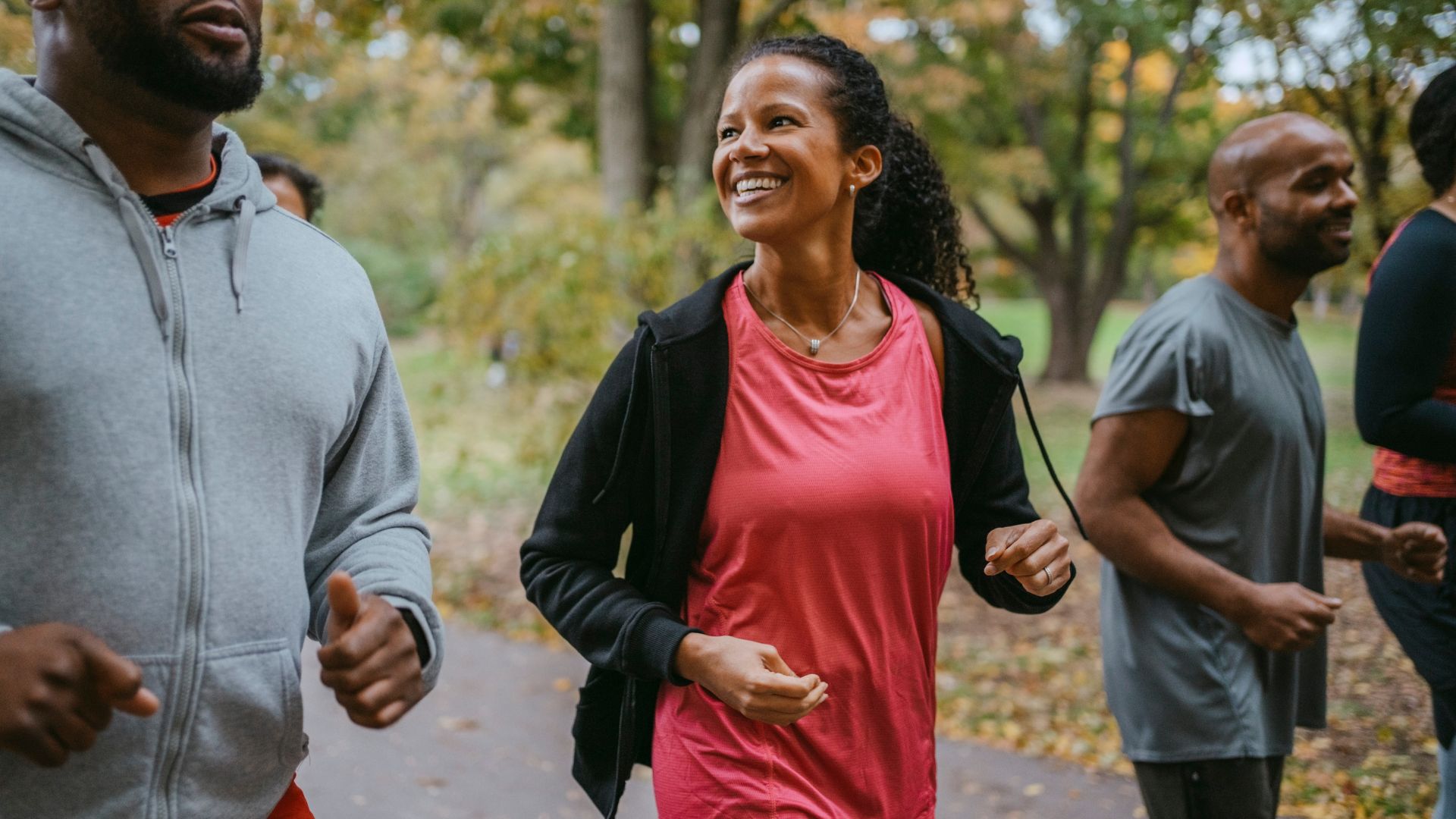
3. Just keep moving
We burn a lot of calories just moving our bodies through the day so the more you move, the more calories you'll burn.
"Add lots of general movement to help burn more body fat and increase your caloric burn," says Hamlin. "Cycle to and from work, walk to the grocery store, go for an evening stroll instead of watching television. Walk up and down the stairs at work instead of taking the list. Each of these things will increase your overall movement and help you burn more body fat and calories which can help you reach your weight loss goals."
4. Avoid restrictive diets
Tracking calories shouldn't mean dramatically restricting, crash dieting, or changing your eating habits. This is unsustainable behaviour, says Hope. "Initially, you may see the numbers dip on the scales but not fueling your body properly could leave you feeling sluggish, moody, nauseous, and run down." Plus, you're a lot more likely to binge at the end of the week and undo whatever process you've made, reveals a study by Pennington Biological Research Center.
This may be because you’re cutting out major food groups, leading to nutrient deficiency. “Limiting specific foods or food groups can also often leave you wanting them more,” says the nutritionist. This could increase sugar cravings, which may set you up for rebound weight gain after the week's up.
"Cravings can adversely affect your weight in the long term and they can pose a risk to your mental wellbeing," she says.
5. Add in nutritionally-rich foods
Don't get hung up on the ultra-processed foods you're cutting out - instead, focus on the nourishing foods you'll be adding to your diet. “Incorporating more nutrient-dense foods into your diet can help to naturally displace some of the more 'unhealthy' foods that are high in sugars and unhealthy fats,” says Hope.
But what exactly should you fill your plate with? Foods rich in protein and fibre will be best as two of the most-filling macronutrients.
Hope recommends adding one extra portion of vegetables into each meal, especially leafy greens like spinach and kale. As some of the best high-protein low-calorie foods, "they are rich in fibre and water, which will help you feel fuller for longer, and high in magnesium and iron to support your energy levels."
Hope also suggests loading up on legumes like beans and pulses, which are also high in soluble fibre. As one of the key components of plans like the 80/20 diet rule, these can help fight inflammation and contribute to sustainable weight loss as they'll also keep you fuller for longer. “Try incorporating beans into Bolognese and stews to bulk them out and add them to soups and curries to ramp up protein and fibre too,” she suggests.
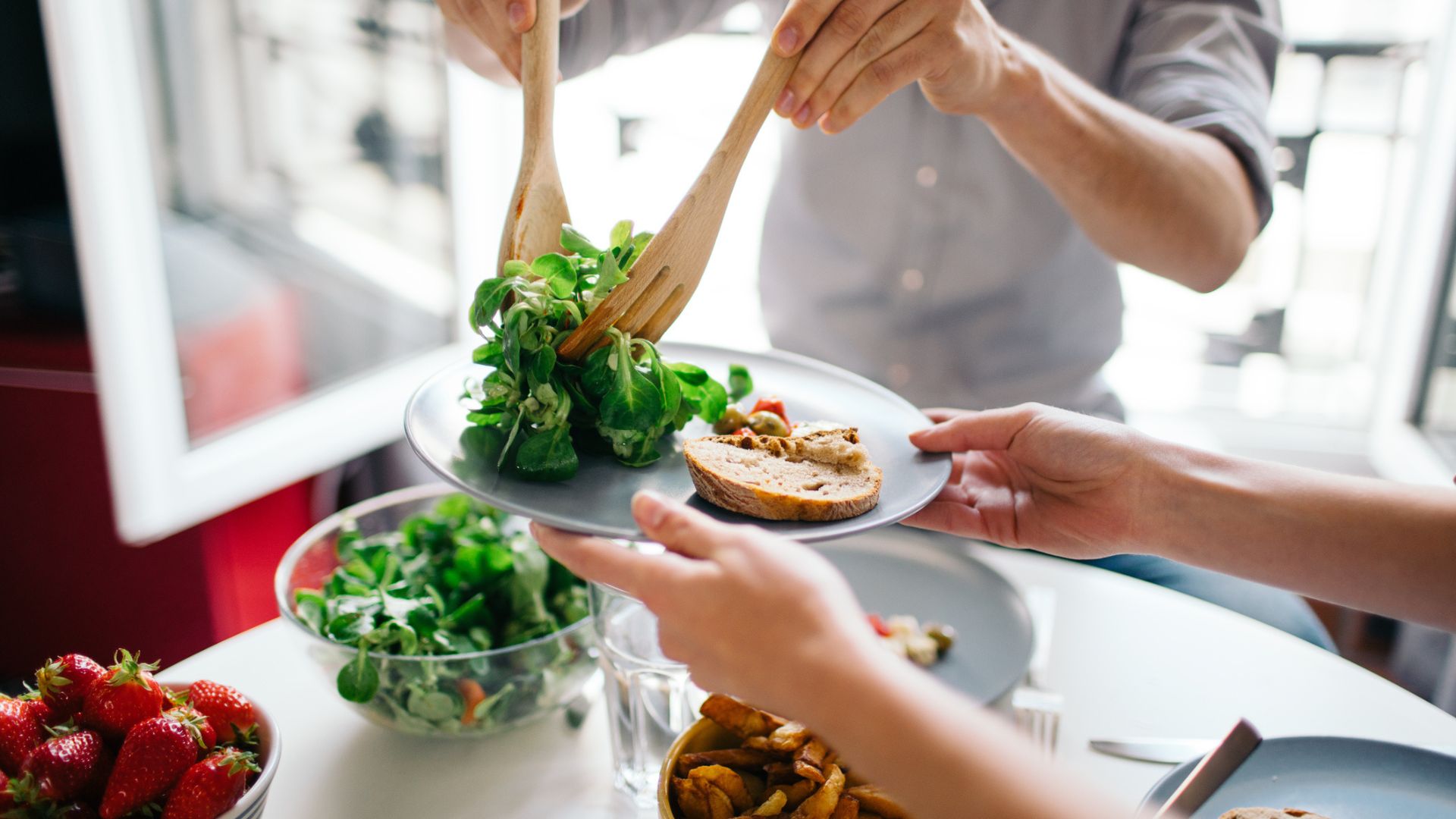
6. Choose healthier snacks
Knowing what to snack on when dieting is essential, Hope says. Eating between meals gets an unnecessarily bad reputation - but trying to stay full with snacks high in sugar and saturated fat won't help you reach your weight loss goals. They tend to be higher in calories than others and contain additives that disrupt how the body produces hormones like ghrelin and leptin - two that control how hungry or full you feel - so you may feel hungry even when you're not.
“Snacks can be a useful tool to manage blood sugar levels and prevent you overeating or craving high sugar foods later in the day,” Hope says. "High-sugar snacks will spike blood sugar levels and cause a consequent crash too."
Switching to some of the best foods for weight loss could help. “They will increase satiety and stabilise blood sugar levels," she adds. These include:
- Cottage cheese on oatcakes
- Natural yogurt and cinnamon
- Carrots and cucumber sticks with reduced fat hummus
- Boiled eggs
- Apple with 1tsp of peanut butter
- Roasted chickpeas
- Edamame beans
7. Stay well hydrated
Drinking litres of water won't make you automatically drop pounds but it will certainly make the short-term process of learning how to lose weight in a week easier. According to Humboldt University, drinking water increases the calories you burn as part of your resting calorie expenditure (the number of calories you burn outside of exercise) by up to 30% within the first 10 minutes.
Not only that - drinking a glass of water can stop you from eating when you're not hungry. This is also one of the biggest intermittent fasting mistakes people make when trying to lose weight. "When individuals are dehydrated, it's common to mistake thirst for hunger, which leads to overeating," says Hope. "Drinking enough water will also ensure your kidneys can effectively filter toxins and waste while retaining essential nutrients and electrolytes. A lack of water can lead to hard or lumpy stools and stop food from moving through your body properly, causing you to feel bloated and uncomfortable, which is hardly workout motivation."
To prevent this, Hope recommends drinking around two litres of water every day.
8. Eat more mindfully
Mindful eating is about engaging with what you consume, much like mindful drinking. "It also means we’re eating in response to our body’s physiological cues," says Hope.
Indeed, many of us make the mistake of munching on something during work or while watching TV, meaning our brains don't properly register what we've taken in. “Eating while distracted can impair digestion and the secretion of satiety hormones,” she explains. This means it can take longer to process that you’re full, which can lead to overeating.
To avoid this common pitfall: “Avoid engaging in other activities while eating and focus solely on the food on your plate,” suggests Hope. Try eating more slowly and not rushing meals, chew thoroughly and focus on how the food makes you feel if you want to learn how to eat less. Listening to your body while you eat will help you acknowledge when you are full, which could lead to better portion control.

9. Make small changes
If you’ve been eating healthy, balanced meals, but you’re still struggling to lose weight, it could be that you need to pay attention to the details. "When it comes to weight loss, focusing on the small things can make a big impact," says Hope. You may be eating a nutritious chicken salad, packed with lean protein, and your five-a-day, but your dressing choice might sabotage your efforts.
“Added sauces, dressings, sugar in tea and coffee, and high-calorie drinks can add up," says Hope. She recommends opting for vinegar-based dressings over sugary, bottled options or sauces, limiting the sugar in your tea and coffee, and switching high-calorie, sugary alcoholic drinks for water or the lowest-calorie alcohol instead if you want to drink. “These small changes will make a big difference over time,” she adds.
10. Find better alternatives
Contrary to popular belief, you don't need to part ways with your favourite foods to lose weight if you want to know how to lose weight in a week. You can swap out certain higher-calorie choices for lower-calorie foods with additional health benefits, suggests Hope. If you love bread, for instance, there's no need to give up this lunchtime staple - opt for sourdough instead.
"Sourdough undergoes a fermentation process, which helps break down the gluten proteins and, as a result, can leave you feeling less bloated than regular bread," explains Hope. It is also a good source of fibre, which is significantly more filling than other macronutrients, apart from protein, a study by Inland Norway University of Applied Sciences explains.
11. Find a workout buddy
If you're finding it difficult to lose weight, consider whether anyone in your life has the same goal. That's not to say you should suggest someone else come along for the ride with you - but if they mention they're interested in losing weight too, you could help keep each other motivated.
As Hamlin says, having an accountability partner can make all the difference. "Having someone to exercise with or hold you accountable can help keep you motivated and on track with your weight loss goals."
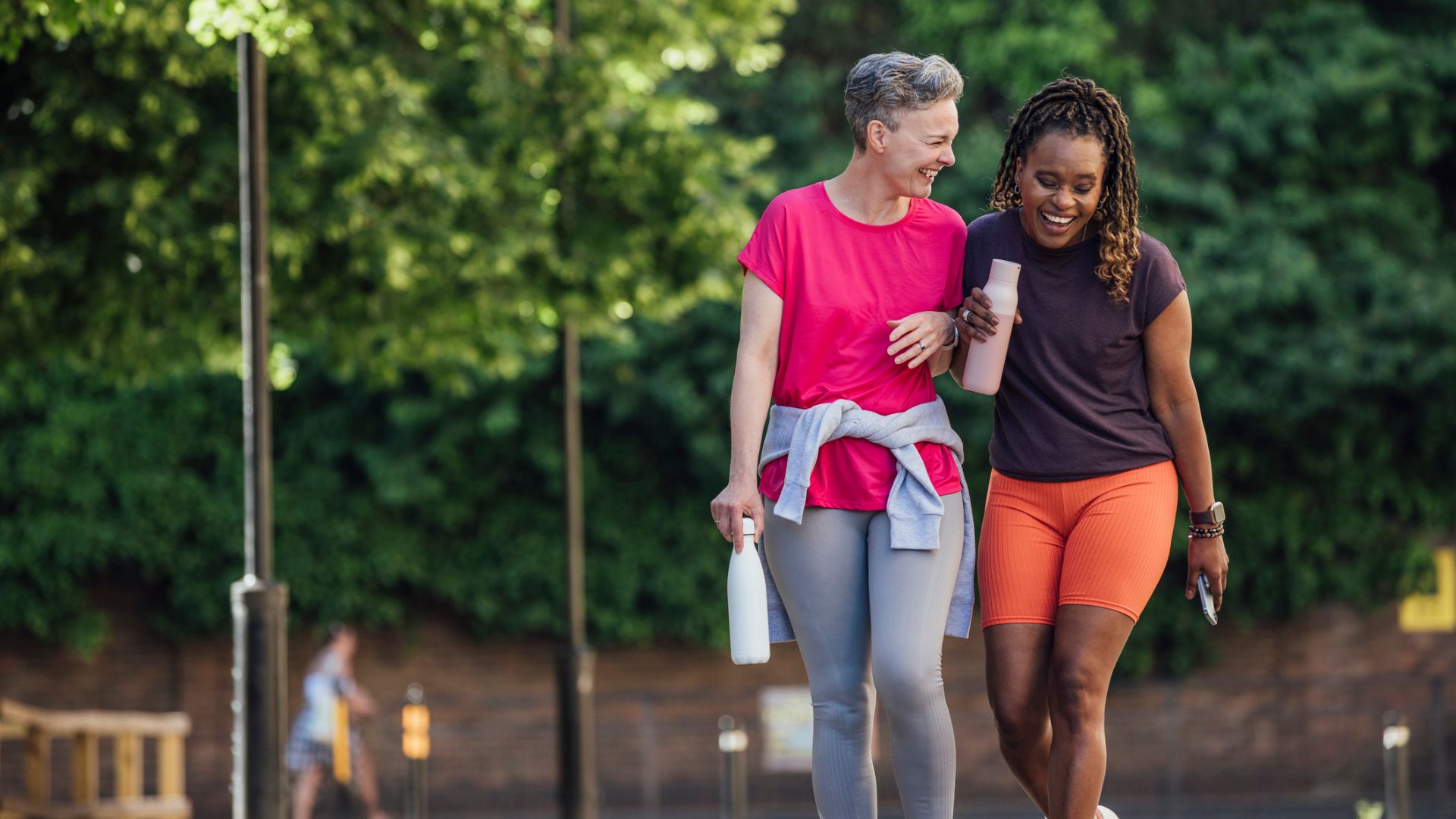
12. Make sure to get enough sleep
If you prioritise exercise over proper rest, you may find it harder lose weight in a week as sleep plays a fundamental role in weight management. For example, a Chicago University review suggests those who have a poor night's sleep are much more likely to overeat the following day as sleep impacts our hunger hormones.
Sleep has also been shown to dictate how effectively we can exercise, with a study by the Defence and Civil Institute of Environmental Medicine suggesting that those who don't sleep well tend to find exercise harder and become exhausted quickly.
It's won't make all the difference in the world in just one week but it's certainly something to think about.
Should you try and lose weight in a week?
It is possible to learn how to lose weight in a week but that doesn't mean you should, says nutritionist Jenna Hope. "There are so many quick fixes out there that promise you a certain amount of weight loss within a short period of time. However, often the faster you lose weight the more likely you are to put it back on."
Any weight you do lose is also unlikely to be fat, rather water weight or muscle mass. A study by Ahvaz Jundishapur University of Medical Sciences found, for instance, that those who lost 5% of their body weight over 5 weeks through a calorie deficit lost less body fat and more muscle mass and water weight overall compared to those who lost the same amount of weight over 15 weeks. Scaled down to one week alone, it's unlikely that whatever weight you do lose will make much of a difference.
It's not only your weight that you may have to worry about though. The body isn't designed to go through a period of rapid weight loss. "Some of the consequences that losing weight quickly can have on the body include gallstones, which occurs in 25% of people who lose weight quickly, dehydration, and of course, malnutrition," she says. "This can all lead to further side effects, including dizziness, recurring headaches, hair loss, fatigue, and constipation to name a few."
Some people also find they don't lose weight in a calorie deficit. Weight loss is so personal, so even if you believe you're in a deficit of between 3,500 and 7,000 calories, there's no guarantee you'll lose between 1lb and 2lb. Several factors that play into it, as outlined by Hamlin:
- Body weight: "The more someone weighs, the more calories they will burn during exercise," he says. "This is because it takes more energy to move a heavier body." It's one of the reasons why some people can lose weight without exercise specifically.
- Gender and muscle mass: "Men tend to have more muscle than women, which means they burn more calories during exercise. The more muscle mass you have, the more strength you have, which means you can move more weight and burn more calories. Your body also burns more calories at rest through the day."
- Duration and intensity of exercise: "Longer and more intense workouts will burn more calories than shorter and less intense workouts," he says, pointing to the benefits of circuit training and similar high-intensity workouts over going for a short walk.
- Age: "As we age, our metabolism slows down, which means we burn fewer calories during exercise."
So, instead of focusing on short-term wins, the experts suggest that you should only be making incremental changes during this time and instead, use the week to start making healthy changes for the coming months.
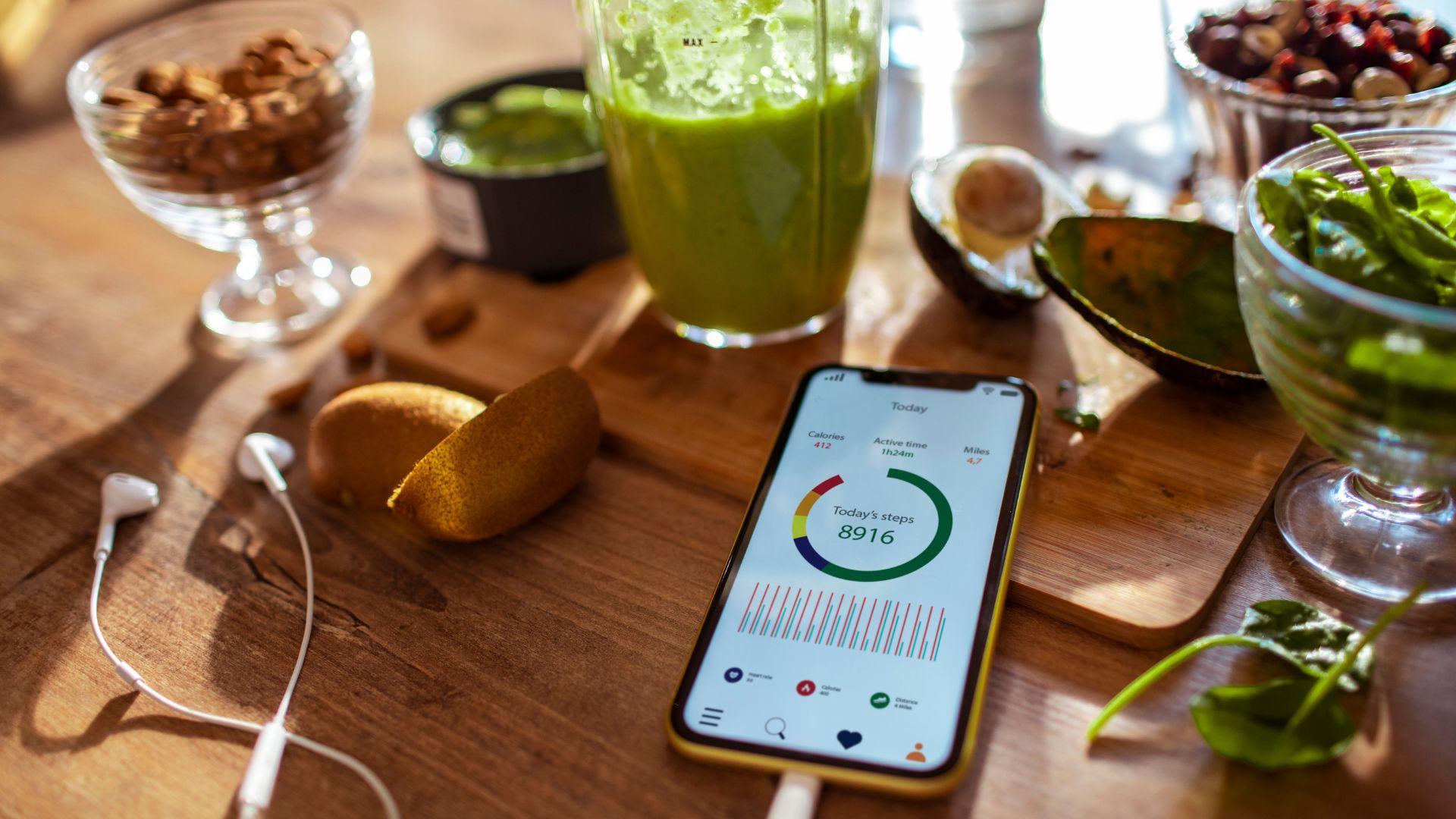
How to lose weight in a sustainable way
Losing weight sustainably is all about combining a healthy diet with consistent exercise, says Hope, offering the plan below to those looking to change their eating habits. "It should only be used as a guide,” she says. “It’s important to mix up your diet on a regular basis and incorporate a wide variety of foods week on week.”
What to eat for breakfast
You activate the thermogenesis process which stimulates your metabolism when you eat breakfast, research by the University of Worchester explains. However, what you choose for breakfast is important, particularly if you are aiming to lose weight without dieting excessively.
Hope recommends consuming some protein and fiber-rich foods to keep your blood sugar levels stable and stop you hankering after a high-sugar snack at 10 am. Some good choices include...
- Porridge with cinnamon and berries
- Green smoothie with banana, Greek yogurt, spinach, oats and cinnamon
- Seeded sourdough toast topped with two scrambled eggs, spinach and mushrooms
- Scrambled tofu with onions and peppers
- Greek yogurt with muesli and berries
- Spinach, mushroom and tomato omelet
- Baked eggs with eggplant, peppers and spinach
What to eat for lunch
If your stomach is rumbling come 1pm, it can be tempting to grab the first thing you see in the fridge. But opting for a nutritionally balanced meal can make a big difference when it comes to losing weight.
Choose a source of protein - think beans, eggs, fish, or chicken - and brightly colored vegetables.
- Minestrone soup
- Vegetable omelet
- Roast chicken salad
- Tuna salad and wholegrain wrap
- Brown rice goodness bowl with avocado, roasted zucchini and eggplant, low-fat hummus and roasted chickpeas.
- Jacket sweet potato with tuna and sweetcorn
- Cauliflower and chickpea soup
What to eat for dinner
It’s crucial you don’t skip dinner or just opt for a bowl of sugary cereal. Research from Osaka University found that while missing the one-off meal wasn't going to cause any damage, those who skipped dinner were more likely to gain weight in the future or be overweight.
Eating a nutritious evening meal is also linked to a restful slumber - by allowing the brain to produce neurotransmitters to calm the mind and induce sleep - and it also encourages you to make better choices at breakfast and lunch the next day by maintaining stable blood sugar levels overnight.
- Prawn stir-fry
- Grilled salmon with broccoli, asparagus and sweet potato
- Quinoa salad with roasted vegetables and a tahini dressing
- Creamy green pea and broccoli soup with sourdough croutons
- Sea bass or tofu traybake with parsnips, green beans and onions
- Turkey burgers served with butternut squash mash, broccoli and cauliflower
- Black bean and mince meatballs in tomato sauce served with quinoa

Grace Walsh is woman&home's Health Channel Editor, working across the areas of fitness, nutrition, sleep, mental health, relationships, and sex. She is also a qualified fitness instructor. In 2025, she will be taking on her third marathon in Brighton, completing her first ultra marathon, and qualifying as a certified personal trainer and nutrition coach.
A digital journalist with over seven years experience as a writer and editor for UK publications, Grace has covered (almost) everything in the world of health and wellbeing with bylines in Cosmopolitan, Red, The i Paper, GoodtoKnow, and more.
-
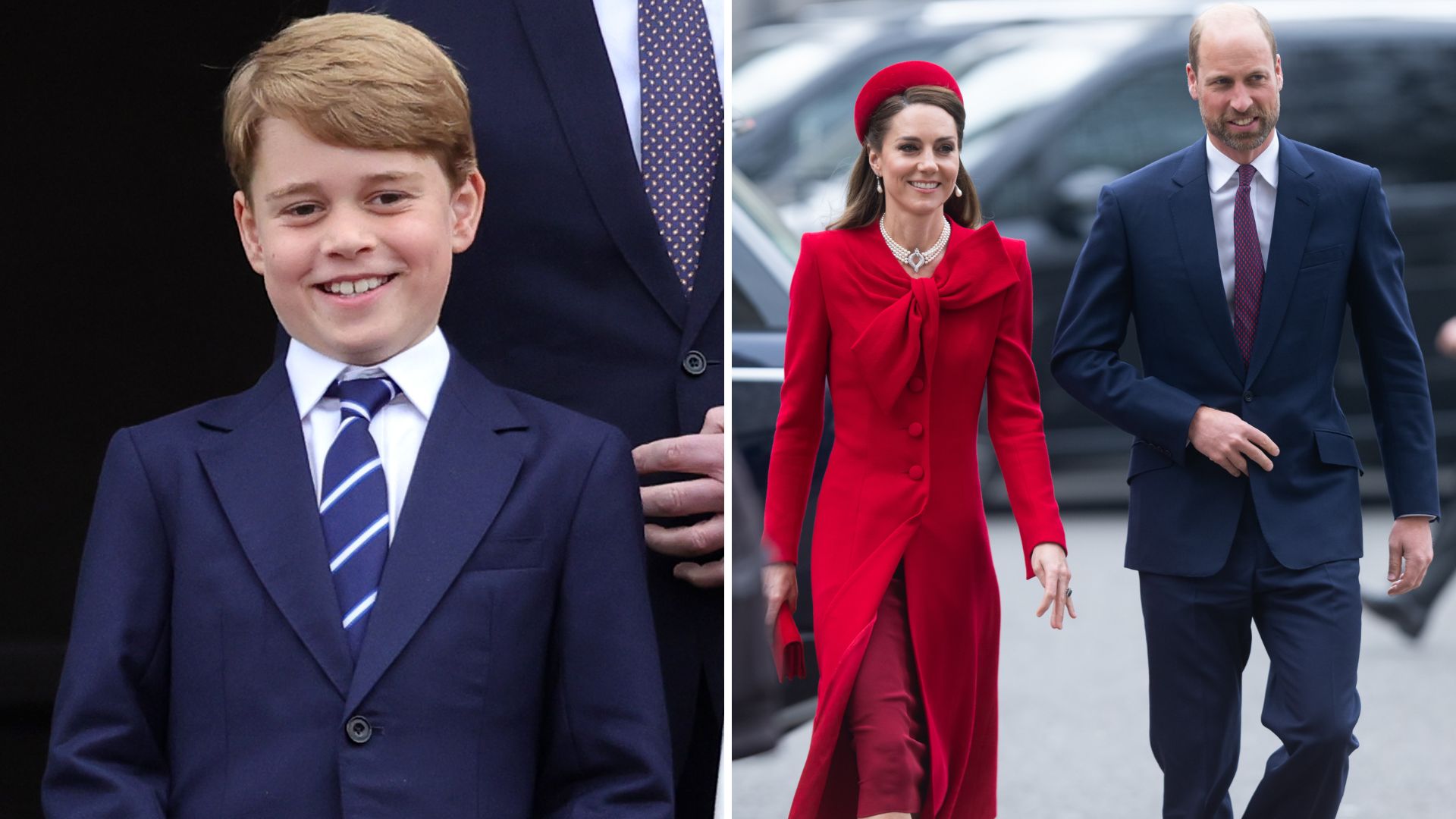 Prince George will start a new school this year and 'smart money' is on Kate and William choosing this one, says royal expert
Prince George will start a new school this year and 'smart money' is on Kate and William choosing this one, says royal expertPrince George only has just over a year left at Lambrook School and Emily Andrews believes there's a top contender for his next one.
By Emma Shacklock Published
-
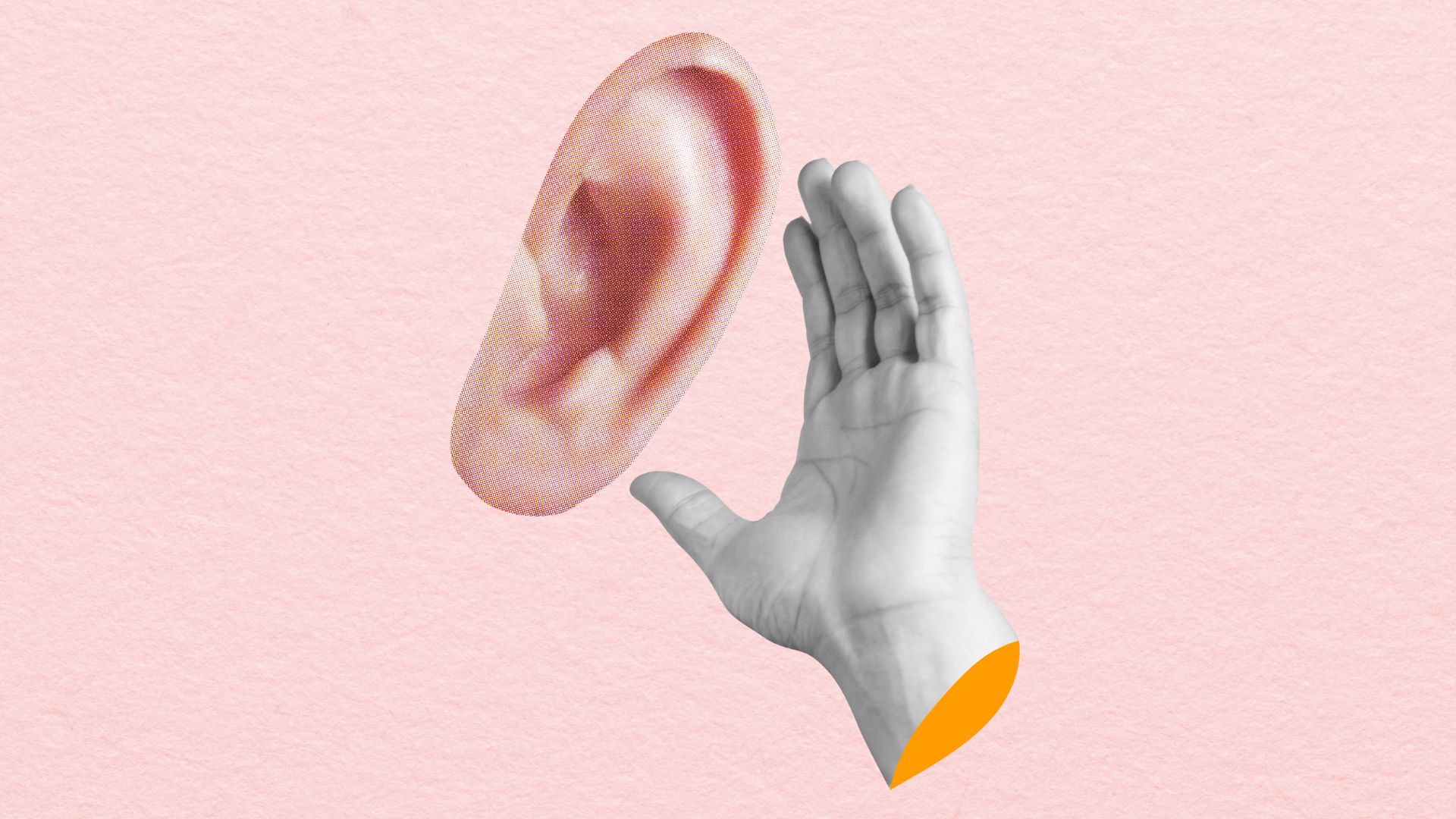 I started losing my hearing in my 40s - here's why you should never ignore the signs like I did
I started losing my hearing in my 40s - here's why you should never ignore the signs like I didNot only the elderly experience signs of hearing loss, contrary to popular belief
By Debra Waters Published